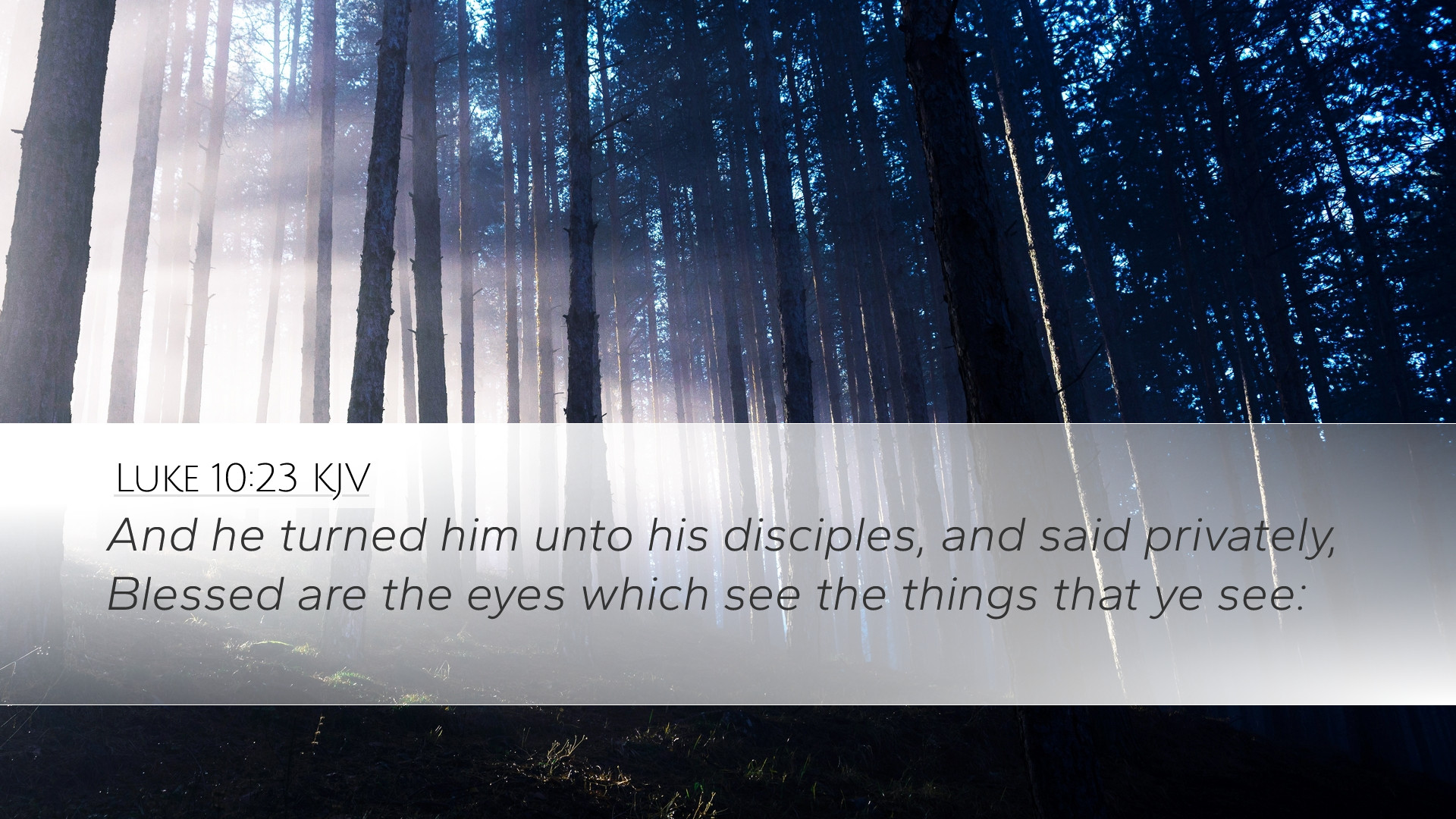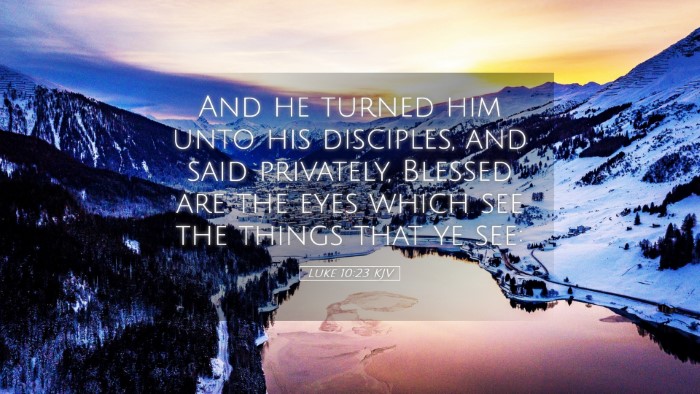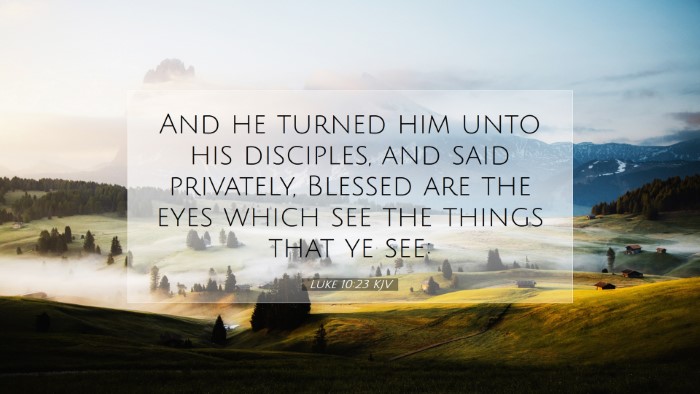Commentary on Luke 10:23
Bible Verse: "And turning to the disciples, He said privately, 'Blessed are the eyes which see the things you see.'" (Luke 10:23, NKJV)
Introduction
This verse occurs in a significant context within the Gospel of Luke. Jesus has been teaching His disciples and sending them out on a mission. This moment, where He addresses them privately, underscores the deep spiritual truths and blessings that are being revealed to them. The words of Jesus invite us to explore the nature of spiritual perception and the privilege of divine insight.
Contextual Background
Prior to this verse, Jesus had sent out seventy-two of His followers to preach the Gospel, heal the sick, and proclaim the coming of the kingdom of God. This mission highlights the unity of purpose and the readiness to serve that characterized the early disciples. Upon their return, they rejoiced at the authority they had in Jesus' name, which sets the stage for Jesus’ profound statement about the blessedness of vision and understanding among His followers.
Exegesis of Luke 10:23
In this verse, Jesus speaks directly to His disciples, marking a transition from public ministry to intimate teaching. Matthew Henry remarks on the significance of the act of turning to His disciples, indicating a bespoke message for them. This act symbolizes a moment of revelation; a moment where Jesus seeks to deepen their understanding of the nature of their mission and the realities they are witnessing.
“Blessed are the eyes”
Henry interprets the term “blessed” as an acknowledgment of the happiness and fortunate state of those who have been granted spiritual insight. Albert Barnes expands on this idea by highlighting that their insight encompasses the revelation of God’s kingdom, which was obscure to many others around them. This blessing indicates a unique favor and privilege given to those who are following Christ.
Spiritual Insight Versus Natural Perception
Adam Clarke emphasizes the contrast between spiritual perception and natural sight. In his commentary, he eloquently states that witnessing the works of Jesus—His miracles, teachings, and the establishment of the Kingdom of God—transcends mere physical sight. It involves a heart that is opened and ears that are attuned to divine truth. The blessedness of this sight signifies an inner awakening, showcasing the necessity of spiritual discernment.
Thematic Insights
This verse invites reflection on several theological themes that are crucial for pastors, scholars, and students alike:
- The Nature of Revelation: The verse speaks to the profound nature of divine revelation that is often veiled to those who are not spiritually attuned.
- The Privileged Discipleship: Discipleship comes with a unique responsibility and privilege to understand and witness God’s workings in the world.
- Encouragement for Believers: This verse serves as an encouragement to all believers, reminding them of the gifts of understanding and insight they possess through faith in Christ.
Application for Today’s Believers
For contemporary believers, this passage challenges us to seek a deeper understanding of the spiritual truths unveiled through Scripture and the life of Christ. As pastors and theologians delve into this text, they may ask: How are our eyes opened to the truths of God today? What practices can we engage in to cultivate our spiritual sight?
Encouraging Spiritual Discernment
It is critical for modern disciples to remain vigilant in their pursuit of spiritual insight and discernment. As Henry articulates, the joy of seeing and understanding God’s works should spur us on to deeper study, prayer, and community engagement. We are reminded that mere observation, akin to the crowds, does not equate to blessedness; rather, it is understanding through faith that brings true happiness.
The Role of the Holy Spirit
Additionally, the role of the Holy Spirit in opening our eyes to truth cannot be overstated. Clarke notes that it is through the Spirit that believers are enabled to grasp the spiritual significance of Christ's works. This invites an active expectation of the Spirit’s leading in interpreting Scripture and in understanding the implications of Christ’s mission.
Conclusion
Luke 10:23 serves as a poignant reminder of the blessings associated with spiritual sight and understanding. It calls us upwards to appreciate the privilege of being disciples in the present age, charged with the knowledge and joy of Christ's revelation. As we engage with this text, may we be inspired to deepen our relationship with the Lord and to share the treasured insights we receive with others, fostering a spirit of wonder and gratitude for the blessings we behold.


